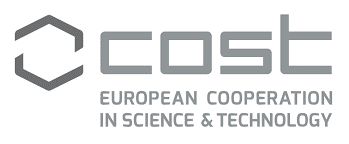PRAGMATICK (CA21170) - Prevention, anticipation and mitigation of tick-borne disease risk applying the DAMA protocol
Project ID
2020-2.1.1-ED-2024-300
Project title
Prevention, anticipation and mitigation of tick-borne disease risk applying the DAMA protocol (PRAGMATICK)
Project manager, contact details
Dóra Göndöcsné Agócs, agocs.dora@pte.hu
Academic supervisor, contact details
Gábor Kemenesi Dr., kemenesi.gabor@gmail.com
Total project budget
No data
Total budget of UP
50.000.000 HUF (CUPID, PRAGMATICK, PHYSAGENET)
Project start date
Project end date
Coordinator
Dr. Gábor FÖLDVÁRI



Partner Organisations
No data
General description
Emerging infectious diseases (EIDs) represent a national security threat for every country, exacerbated by climate change, human population expansion, urbanization, and globalization. Based on theoretical expectations previously EIDs were thought to be rare and impossible to anticipate because they require novel genetic mutations to infect novel hosts. A new conceptual framework has been developing for nearly 40 years and has recently been articulated in a manner that leads directly to a protocol for taking proactive
or anticipatory steps in coping with EIDs, especially those numerous high probability/low impact pathogens. The framework is called the Stockholm paradigm, which shows that a major trigger of emerging disease, now and in the past, has been climate change. The PRAGMATICK COST action aims to disseminate knowledge and promote the application of the Stockholm paradigm in order to anticipate and mitigate disease risk associated with the presence and spread of ticks and tick-borne pathogens (TBPs) under anthropogenic pressure and changing climate. This research network will apply the comprehensive and highly focused DAMA (Document, Assess, Monitor, Act) protocol that allows to “anticipate to mitigate” emerging diseases. The main focus is on urban tick and TBP hotspots and the spread and establishment of ticks and TBPs. PRAGMATICK will find new ticks and tick-borne pathogens before they find us. By applying citizen science and supporting capacity building in the domain of tick and tick-borne disease prevention, the Action will eventually lead to new and improved insights in the potential threats related to this important group of vectors across Europe.
Program
COST Action
Application monitoring
